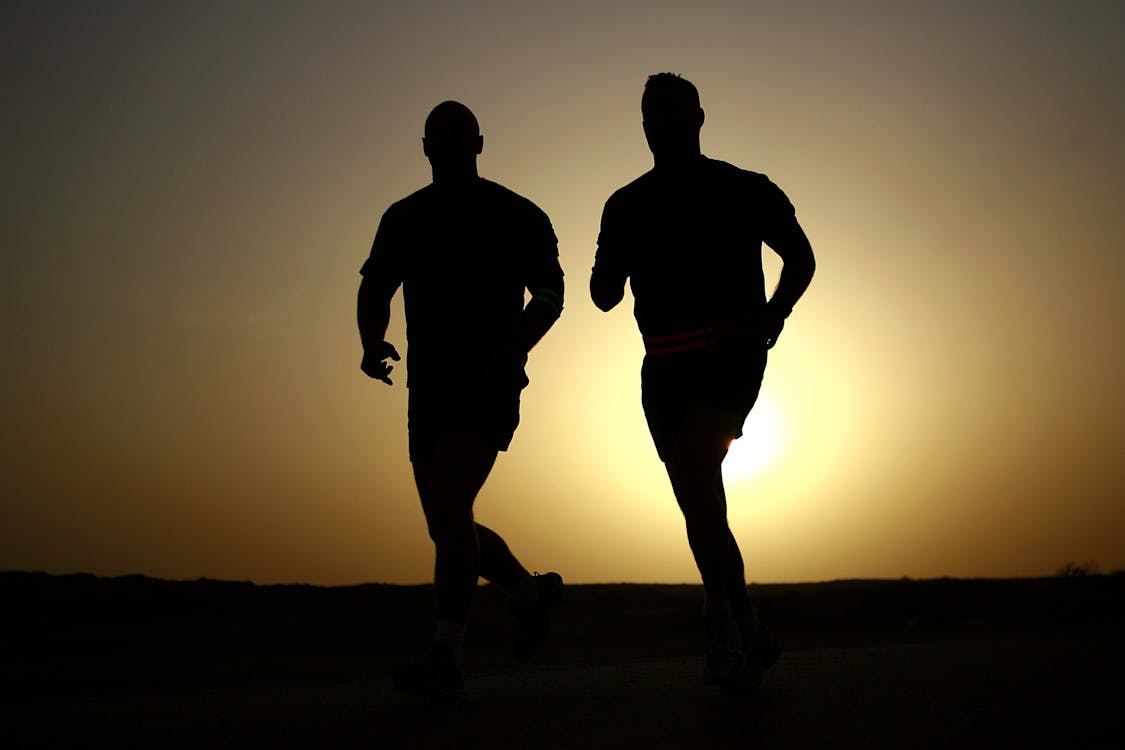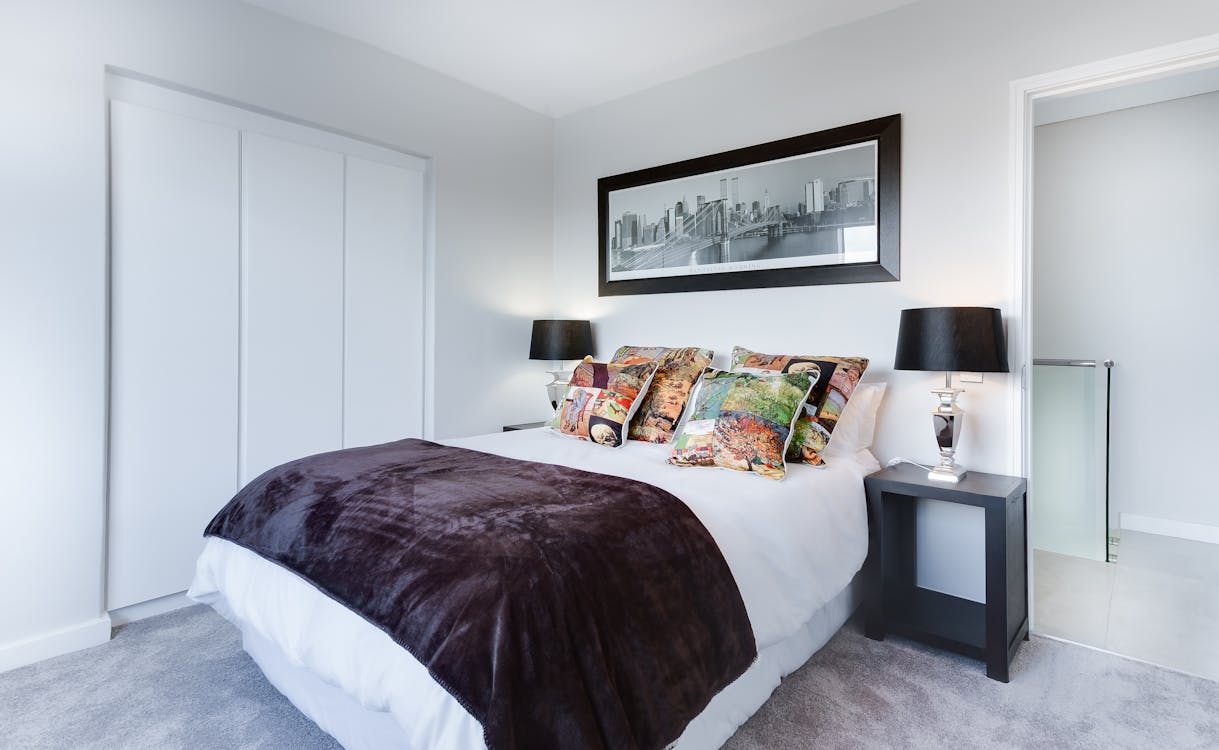Getting enough sleep at night does much more than help you feel well-rested in the morning. Your sleep quality (or lack thereof) is one of the biggest influences on your overall health. Needless to say, anything that significantly disrupts your sleep and keeps you from getting the rest you need can have serious long-term consequences.
Fortunately, you don’t have to continuously suffer from a lack of sleep. By addressing underlying sleep disorders and making key lifestyle changes, you can dramatically improve the quality of your sleep. When this happens, you’ll have the energy you need for the day’s activities, and also avoid health complications like high blood pressure and depression, which can result from poor sleep.
Here are a few things you might want to consider so you can enjoy higher-quality sleep.
1. Participate in a Sleep Study — and Follow the Recommendations
 It’s not unusual to occasionally have a night when you don’t sleep well. But some people struggle to get a good night’s rest night after night. In this case, there is a good chance that you are suffering from a sleep disorder. Sleep disorders are surprisingly common. The American Sleep Association estimates that between 50 and 70 million adults in the United States suffer from at least one sleep disorder, with 25 million experiencing obstructive sleep apnea. Over 35 percent of adults report that they typically get less than seven hours of sleep each night.
It’s not unusual to occasionally have a night when you don’t sleep well. But some people struggle to get a good night’s rest night after night. In this case, there is a good chance that you are suffering from a sleep disorder. Sleep disorders are surprisingly common. The American Sleep Association estimates that between 50 and 70 million adults in the United States suffer from at least one sleep disorder, with 25 million experiencing obstructive sleep apnea. Over 35 percent of adults report that they typically get less than seven hours of sleep each night.
Quite often, people who suffer from sleep disorders aren’t even aware that they have an underlying condition contributing to their problem. In obstructive sleep apnea, the person will wake up gasping for breath after their airways get blocked off. However, these incidents occur so quickly that most people do not even remember them.
If you suspect you might have a sleep disorder, speak with your doctor, who can help you set up a sleep study. These often involve an overnight stay at a sleep center, where your sleep patterns will be closely monitored. This testing is used to identify the severity of sleep apnea, as well as the presence of any other disorders.
Medical specialists will make recommendations based on the findings of your sleep study. For individuals with sleep apnea, using a CPAP machine will help prevent interruptions to breathing during the night. Some conditions may also require medication or positional sleep therapy. Regardless of what your doctor recommends, following these guidelines will play a big role in improving your sleep quality.
2. Cut Down on Screen Time
 Smartphones have had a transformative impact on society, but not always for the better. Smartphones have become so engrained in our everyday life that many people fall asleep with their phone in their hands. Or they use their phone to send messages, check social media, or watch videos while still in bed.
Smartphones have had a transformative impact on society, but not always for the better. Smartphones have become so engrained in our everyday life that many people fall asleep with their phone in their hands. Or they use their phone to send messages, check social media, or watch videos while still in bed.
As the National Sleep Foundation explains, this can be extremely disruptive to your sleep. “Smartphones — like laptops, tablets, and televisions — emit something called blue light, which is a type of light that the brain interprets as daylight. The blue light actually suppresses melatonin (a hormone that affects circadian rhythm and should increase when you are preparing for bedtime). The result: Your brain feels stimulated. This is fine if you’re looking at your smartphone’s screen at noon, but if you’re looking at the screen at midnight, your brain is going to get confused and think that the sun is out — making it even tougher to fall asleep.”
The problem gets even worse if notifications are going off in the middle of the night, which has the potential to wake you up and further disrupt sleep. Medical professionals recommend limiting screen time before bed. To help reduce the temptation to check your phone as you’re getting ready for bed, you might need to keep it in another room.
3. Eat Right and Exercise
 Diet and exercise play a significant role in your overall health and wellbeing, including sleep quality. Eating healthy foods and exercising regularly helps you maintain a healthy weight, which can reduce the severity of obstructive sleep apnea (which has been consistently linked with obesity). Your diet and exercise habits will also influence sleep quality even if you aren’t trying to lessen the severity of sleep apnea.
Diet and exercise play a significant role in your overall health and wellbeing, including sleep quality. Eating healthy foods and exercising regularly helps you maintain a healthy weight, which can reduce the severity of obstructive sleep apnea (which has been consistently linked with obesity). Your diet and exercise habits will also influence sleep quality even if you aren’t trying to lessen the severity of sleep apnea.
For example, research from the Johns Hopkins Center for Sleep suggests that participating in 30 minutes of moderate aerobic exercise during the day will help you fall asleep faster and sleep more soundly at night. This is something where you can see same-day results.
However, the researchers also note that the time of day when you choose to exercise can make a difference for your sleep quality. Exercise raises your body temperature and releases endorphins, resulting in a temporary energy boost that can make it hard to fall asleep if you exercise right before bed. Because of this, it is generally recommended that you exercise in the morning or early afternoon for the best sleep results.
What you eat and drink before bed will also play a role in sleep quality. Generally speaking, it is best to avoid foods that are high in caffeine or sugar in the hours before bed, because these will cause a large energy burst. Spicy and acidic foods could cause heartburn during the night, and drinking too much of any fluid could make you need to get up to go to the bathroom during the night.
For better sleep, choose healthy foods that are higher in carbohydrates, as they will help you feel full throughout the night. Be mindful of how different foods affect your sleep. This is often an individual matter. Some people sleep better if they have a snack right before bed, others do not. Pay attention to what works or doesn’t work for you so you can adjust accordingly.
4. Limit Consumption of Alcohol and Tobacco
 While some people believe that alcohol can help them sleep better by falling asleep faster, studies have found that this actually harms overall sleep quality by reducing restorative REM sleep. You might be getting a full seven to nine hours of sleep, but it won’t be at the level of quality you need to avoid feeling sleep deprived.
While some people believe that alcohol can help them sleep better by falling asleep faster, studies have found that this actually harms overall sleep quality by reducing restorative REM sleep. You might be getting a full seven to nine hours of sleep, but it won’t be at the level of quality you need to avoid feeling sleep deprived.
On the other hand, the nicotine that is present in tobacco products is actually a stimulant, which will make it harder to fall asleep. It is believed that withdrawal symptoms can also occur during sleep, which limits how much deep sleep a smoker is able to enjoy.
Using alcohol and tobacco products can also worsen sleep apnea symptoms. Drinking alcohol before bed relaxes the throat muscles, making them more likely to collapse and cut off the flow of air. Tobacco usage irritates the throat, which can also complicate sleep apnea and other disorders.
Cutting out alcohol and tobacco won’t just help you sleep better. You’ll reduce your risk for heart disease, lung cancer, and many other serious health hazards directly linked to excess consumption of these substances.
5. Make Your Room a Haven For Sleep
 Your bedroom layout can have a bigger influence on your sleep quality than you might expect. Most sleep experts recommend that you avoid using your bedroom for activities other than sleep or sex. Watching TV, reading, or anything else can train your brain to associate the bedroom with these activities rather than sleep.
Your bedroom layout can have a bigger influence on your sleep quality than you might expect. Most sleep experts recommend that you avoid using your bedroom for activities other than sleep or sex. Watching TV, reading, or anything else can train your brain to associate the bedroom with these activities rather than sleep.
When you use your bedroom almost exclusively for sleep, simply going into the bedroom sends a signal to your brain that it is time for bed.
As previously noted, the blue light that comes from smartphones, TVs, and other devices can have a significant impact on sleep quality. Getting such distractions out of the bedroom is important, but so too is addressing other sources of natural or artificial light. If you use LED lighting in your bedroom, this could also make it harder to fall asleep. Instead of using overhead lighting, consider turning on a small bedside lamp as you get ready for bed.
Depending on where you live, you may also need to use blackout curtains. These will block outside light, which can cause you to wake up much earlier than you’d like. Close the bedroom door to block out noises from the rest of the house. Some people also benefit from a noise machine, which makes a consistent soft soothing noise that helps lull them to sleep. The room should be kept at a cooler temperature — turn on the ceiling fan if you don’t want to lower the thermostat too much.
6. Create a Nightly Routine
 In addition to transforming your bedroom into a more sleep-friendly environment, it may also be helpful to establish a set routine each night that helps your body transition to bedtime. For best results, you should try to have a consistent bedtime, as this will help you get tired when it’s time for bed. To stay on track, some people actually set an alarm so that they know when to start getting ready for bed.
In addition to transforming your bedroom into a more sleep-friendly environment, it may also be helpful to establish a set routine each night that helps your body transition to bedtime. For best results, you should try to have a consistent bedtime, as this will help you get tired when it’s time for bed. To stay on track, some people actually set an alarm so that they know when to start getting ready for bed.
For people who have sleep apnea, putting on their CPAP mask shortly before going to bed can help them get in the right mindset for sleep. Other calming activities, such as reading a book for half an hour or so before bedtime, can help your brain and body relax.
Yoga can be an especially powerful activity for improved sleep. Many yoga routines focus on breath cycles and meditation. Such routines, combined with simple stretches, will help soothe any mental stress or anxiety you might be feeling. They can also relax the muscles, eliminating built-up tension that can make it harder to fall asleep.
If you have trouble falling asleep because you worry about things you need to do the next day, it may be helpful to take a few minutes to write down a to-do list. This can help you worry less about these items once you are lying in bed.
Rather than staying in bed if you are having trouble falling asleep, most experts recommend that you actually get up and out of bed. Briefly try a relaxing activity (like reading, yoga, or even writing in your journal) before getting back in bed. This can help your mind and body reset so that you aren’t focused on how you haven’t been able to fall asleep yet.
Sleep Better, Feel Better
When you get enough sleep, you’ll have the stamina necessary to get through work, school, and any other daily activities and responsibilities. You’ll be in a better mood, which will help you have a better relationship with your friends and family. You’ll be less likely to be involved in a drowsy driving accident.
Long-term, your higher-quality sleep will reduce your risk for heart disease, stroke, type 2 diabetes, depression, and other health complications.
Sometimes, of course, your own habits won’t be enough to fully improve your sleeping habits. If sleep apnea is keeping you from getting the restorative night’s sleep that you need, getting appropriate CPAP or BiPAP equipment should be a top priority.
At Help Medical Supplies, our affordable bundle packages, discounted prices on a wide range of CPAP equipment, free shipping on orders over $89, and available financing are all meant to help you better afford the equipment you need, even if you don’t have insurance.
Sleep is one of the things your body needs more than anything else. By using a CPAP machine and making any other lifestyle changes that might be needed to get a full night’s rest, you will see dramatic improvements that help you live better in the years ahead.

